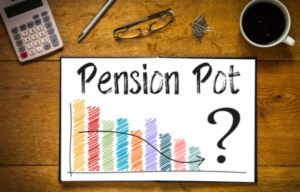
During your working life, you’ll have on average 11 different jobs according to research by the Pension Tracing Service, and that means you might have as many as 11 different company pensions floating around. There could be other types too - maybe you’ve been auto-enrolled in the government’s workplace pension scheme NEST, or you set up your own Self-Invested Personal Pension (SIPP).
Suppose you are struggling to keep track of lots of different savings pots. In that case, you might be wondering if combining them all into one is worth it to make them easier to manage and whether it is worth using a consolidation specialist such as PensionBee or Profile Pensions. This article looks at the pros, cons, and things to consider. In this article, we are specifically referring to 'defined contribution' pension schemes. If you have a defined benefit pension, also known as a final salary scheme, read this article to learn more about pension transfers and how to protect your valuable pension pot.
How does pension consolidation work?
If you are an organised person who likes to stay on top of your finances, the idea of having all your investments visible in one place might appeal. You have greater control and a much clearer picture of how much money you have and what sort of retirement income you are on track to receive. This is an important benefit, but perhaps more important is that consolidating pensions will help you assess what investments you actually hold, and achieve better balance and diversification within your portfolio.
If you have been in a workplace pension scheme in the dim and distant past, you may not have any idea what underlying investments your money has been put into. Some schemes have a limited range of investments and allocate your money according to what they determined your risk tolerance was at the time you started paying into that pension. If that was a number of years ago, the chances are those investments are no longer suitable or aligned with your financial goals.
There is also a risk your money may be parked in expensive or poorly performing funds. So even if you decide not to consolidate and transfer your pensions into one, if you do have multiple pension schemes, it is a good idea to dig out the paperwork and review them carefully. Changing the way your money is allocated could mean that a forgotten pension works much harder for you in future.
If you transfer a workplace pension into a SIPP, you will often get a much wider choice of investments, not just funds but stocks, bonds, ETFs and investment trusts as well.
You could also shop around and reduce the fees you pay, meaning you keep as much of your investment returns as possible. Old pensions set up before 2001 can be especially expensive, as they would fall outside the remit of a cap on stakeholder pension charges which was brought in that year.
Many providers also offer lower fees as your pot grows, so this could be another good reason to consolidate your various different pension pots.
PensionBee
Combine, contribute and withdraw online. Take control of your retirement and join 229,000 customers saving with PensionBee.
- Sign up in minutes
- Make flexible contributions and withdrawals¹

Why are pension fees important?
Imagine you had £10,000 in a pension pot at the age of 30 and you paid in contributions of £250 a month until you were aged 60. In that time, your pot grew at an average rate of 5% a year but you paid 2.5% a year in charges, meaning that by the time you reached 60 it was worth £154,459.
If that same pot was invested in better-performing funds, delivering 7% a year, and you found a cheaper pension provider so you were paying 1.5% a year in charges, your pot would be worth £273,563 by the age of 60, a substantial difference. This example illustrates the extent to which high fees and poor performance can erode your hard-earned capital.
Can you have more than one pension?
Yes, you can have as many as you like, as long as you stay within your allowances when making contributions. But there is usually little point in having multiple private pensions, you are simply paying more in fees for no real benefit.
Consolidating your pension pots may help to cut down the fees you are paying
Check whether you are still paying trail commission on old pensions pots. Although advisers have not been allowed to charge this way since a rule change in 2013, some legacy products may still carry trail commission and, again, this can eat away at your returns.
By transferring to a more modern provider with a better digital offering, you get the added benefit of being able to manage your pension online, if this is what you want. Forget the paperwork gathering dust in a bottom drawer and bring your old pension pots into the 21st century.
When you should consider combining your pensions
Timing might affect your decision on combining two or more pensions. For example, if you are nearing retirement age, you might find it easier to transfer all your pensions into one place so you can get a clearer picture of the size of your pot and how it is performing. This can help with your retirement income planning. Nearer to retirement, you will usually want to reduce the level of risk in your portfolio and focus on capital preservation, as you will soon need to draw on those savings. This might mean lowering your allocation to international equities, for example, in favour of safer government bonds. Combining your pensions will make it easier for you or your financial adviser to rebalance your investments to make them more suitable for your life stage.
Having all your pension money in one place can be helpful if you plan to buy an annuity, which pays you a regular income for the rest of your life, as these products will take into account the total value of your pot when calculating your payout. Income drawdown plans will probably also be cheaper if they are based on one large pension pot rather than several smaller ones. If you are very close to retirement and think you would like to buy an annuity or start income drawdown, you may need to transfer any workplace pensions into a personal pension as not all employer schemes will offer this facility.
You might also consider consolidating pensions when changing jobs, so you can take a workplace scheme from your former employer with you while you still have all the details to hand and fresh in your mind.
When not to consider combining pensions
You should not even consider putting all your pensions together until you have read the small print on each. That’s because you could lose out on benefits such as guaranteed annuity rates, protections, at-retirement bonuses or benefits such as a spouse’s pensions if you switch your cash to another provider.
Bear in mind there can also be exit fees and transfer fees when you consolidate pensions, so you may decide it is not worth paying these, especially if the pot you want to transfer is fairly small.
You should check what fees apply and work out if the cost of these could outweigh any benefits you might get from transferring, such as lower fees or better fund performance. Seek professional help with this* if you are unsure as getting it wrong could prove expensive.
If you are considering transferring an active workplace pension - meaning you still work for the firm and and your employer are still paying in - you should probably think twice about consolidation into another scheme. Any employer contribution into your pension is free money, amplified with a nice bit of tax relief from the government, so it is not usually a good idea to give this up. Combining pensions is a more sensible strategy when you have old, dormant pensions which are no longer receiving contributions.
Also, bear in mind that when you transfer a pension, you will usually have to sell your underlying investments, so you will be out of the market until you reinvest them. You might want to think about timing here. For example, if global markets are falling, you may want to stay put a bit longer so you don’t realise a loss on your investments at transfer time.
If you have a final salary (defined benefit) pension scheme, transferring is usually not a good option but it depends on your personal circumstances. Final salary pensions give you guaranteed benefits linked to your salary, which makes them very valuable and is the reason they are now a dying breed - they are very expensive for companies to fund. If you are lucky enough to have one, you must take reputable financial advice before making any decisions, this is actually a legal requirement if your pot is worth more than £30,000. Read our article on whether you should transfer your final salary pension before you consider transferring out of your pension. It is also worth using this useful calculator to give you a better idea of your potential pension transfer value.
9 things to check before you consolidate your pensions
There’s a lot to think about, so here’s a handy checklist of pension consolidation tips, reminding you of the questions you need to ask before making any transfers:
- Have you read the small print?
- Will you have to pay exit fees?
- Will you lose any bonuses, guarantees or other benefits?
- Will your new scheme have lower fees than the old pensions you want to transfer?
- Will you have a better choice of investments and are they the ones you want?
- Will you lose any employer contributions?
- Is the market at a level where you won’t crystallise a big loss if you sell your investments now?
- Will your new scheme let you manage your pension in the way you want (eg paperless, online, using an app)?
- Have you taken professional financial advice?
How to track down lost pensions
It’s easy to lose old pension paperwork, but it’s always worth trying to track down any forgotten pension pots. Recent analysis from the Centre for Economics and Business Research suggests there is as much as £50bn in unclaimed pension savings in the UK. If you think you have an old pension that you wish to track down, you could try the Pension Tracing Service. You simply enter your former employer’s details into an online database to get contact details for pension schemes you may have paid into in the past.
The government has also been working with the pensions industry to try to get its Pensions Dashboard off the ground. This initiative aims to gather detail about every individual’s pensions, including DB, DC and the state pension, and show them all in one place on the ‘dashboard’, including their current values. The scheme has been a long time coming, initially aiming (and ultimately failing) to launch in 2019. In October 2020, it was announced that it had been delayed further, with an indicative date of 2023 being set. The Pensions Dashboard is slowly pushing forward, however, we still have a couple of years to wait as the deadline for pension providers and schemes to connect to the digital architecture has been set at 31st October 2026.
How to combine your pensions
The government has tried and ultimately failed to introduce automatic pension transfers, an automated service that allows small pension pots (of under £10,000) to move automatically to an employee's new workplace pension scheme when they change jobs. This means savers, for now at least, will have to continue to keep track of their pensions themselves. You can get help though – why not try a pensions consolidation service? There are some good low-cost options available now in this space, with PensionBee being one of them. In addition, You can read more in our independent PensionBee review. Alternatively, if you know where your pensions are located, you could consoliate your pensions yourself. Check out our latest cashback offers and deals in our article 'Best pension casback offers and fee-free deals'.
If you would rather not go down the DIY route, taking professional financial advice is always sensible. MoneytotheMasses.com has partnered with Unbiased to offer readers a free pension review with a local IFA*. We also suggest you read our article 10 tips on how to find a good financial adviser.
If a link has an * beside it this means that it is an affiliated link. If you go via the link, Money to the Masses may receive a small fee which helps keep Money to the Masses free to use. The following link can be used if you do not wish to help Money to the Masses - Unbiased, PensionBee







